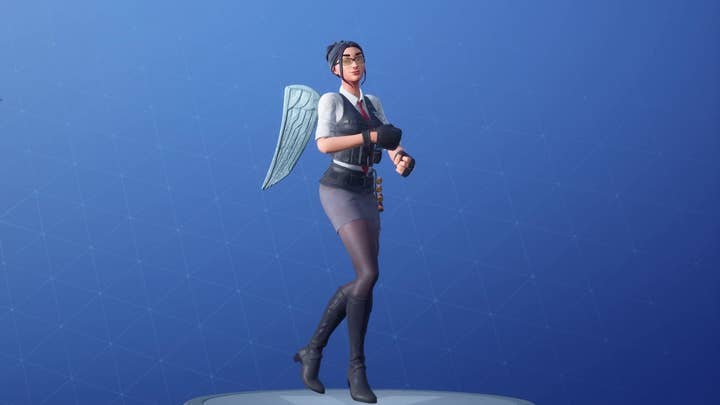Epic Games accused of exploiting African American talent in latest dance move lawsuit
Update: Plaintiffs' legal rep clarifies ownership quandary in $20 million Running Man dance routine lawsuit
Original story, February 26: Epic Games has been accused of consistently seeking to exploit African American talent by the duo famed for popularising the Running Man challenge.
The accusations surfaced in a lawsuit filing against the Fortnite developer by plaintiffs Jared Nickens and Jaylen Brantley, who claim to have created the dance in 2016 while playing together on the same basketball team at the University of Maryland.
According to the complaint, Epic Games is unfairly profiting from the plaintiffs' creative expression, selling the dance emote under the name Running Man.
It's the latest lawsuit filed against Epic Games over the alleged misappropriation of copyrighted dance moves.
"Epic has copied the dances and movements of numerous African-American performers... Epic did not seek consent or authorization to use any of these movements or dances," reads the complaint.
Filed just this week, the case comes shortly after Alfonso Ribeiro was denied copyright to the Carlton dance.
It was the first ruling in the unfolding legal battle of creators against Epic Games, and could set the precedent in these uncharted waters.
Despite the US Copyright Office ruling Ribeiro's dance was too simple to be protected by law, Nickens and Brantley have gone ahead and taken their case to Maryland District Court.
The filing alleges infringement of copyright, contributory infringement of copyright, violation of publicity rights, and unfair competition.
Nickens and Brantley argue that Epic Games effectively hijacks the creative expression of dancers as the moves become associated with Fortnite, rather than their respective creators.
"Epic uses the Running Man, and other dances, to create the false impression that Epic started these dances and crazes or that the artist who created them is endorsing the game," reads the complaint.
In total, the plaintiffs' are suing for a minimum of $20 million damages, plus legal fees, and for Epic Games to cease sale and distribution of the Running Man dance emote.
However, the origins of the dance could be disputed, and are possibly attributable to New Jersey high school students Kevin Vincent and Jeremiah Hall -- though popularised by Nickens and Brantley -- as demonstrated in a joint appearance the four made on the Ellen Degeneres show in May 2016.
There is no reference to Vincent or Hall in the filing, which claims: "In 2016, Plaintiffs [Nickens and Brantley] created a dance, which they named the 'Running Man' while listening and dancing to music with their friends and teammates."
During their appearance on the show, Nickens said he first saw the dance when the Brantley showed him the original instagram video posted by Vincent and Hall.
The legal representative for Nickens and Brantley did not respond to requests for comment in time for publication.
Update, February 28: Following queries regarding ownership of the dance routine, the legal representative for Nickens and Brantley has clarified the point of contention.
Although the filing claims the duo created the dance in 2016, and makes repeated references to how the dance routine belongs to the plaintiffs, part of the lawsuit relates to how Epic Games allegedly coded the emote directly from video footage of the plaintiffs dancing.
In an email GamesIndustry.biz, Richard Jaklitsch of Jaklitsch Law Group said: "Other cases in California may be relying on a copyright of a dance; our complaint is different.
"Epic stole the image of Nickens and Brantley off a video they produced and which was posted to the internet, went viral and greatly popularized that dance.
"They coded, from the video of my guys, an avatar that is the exact copy of my guys's image on that video, then made an ocean of money off that theft of their image without paying a nickel or even giving credit to my guys.
"In America, juries don't look kindly on theft - whether of someone's image or creative talent."









